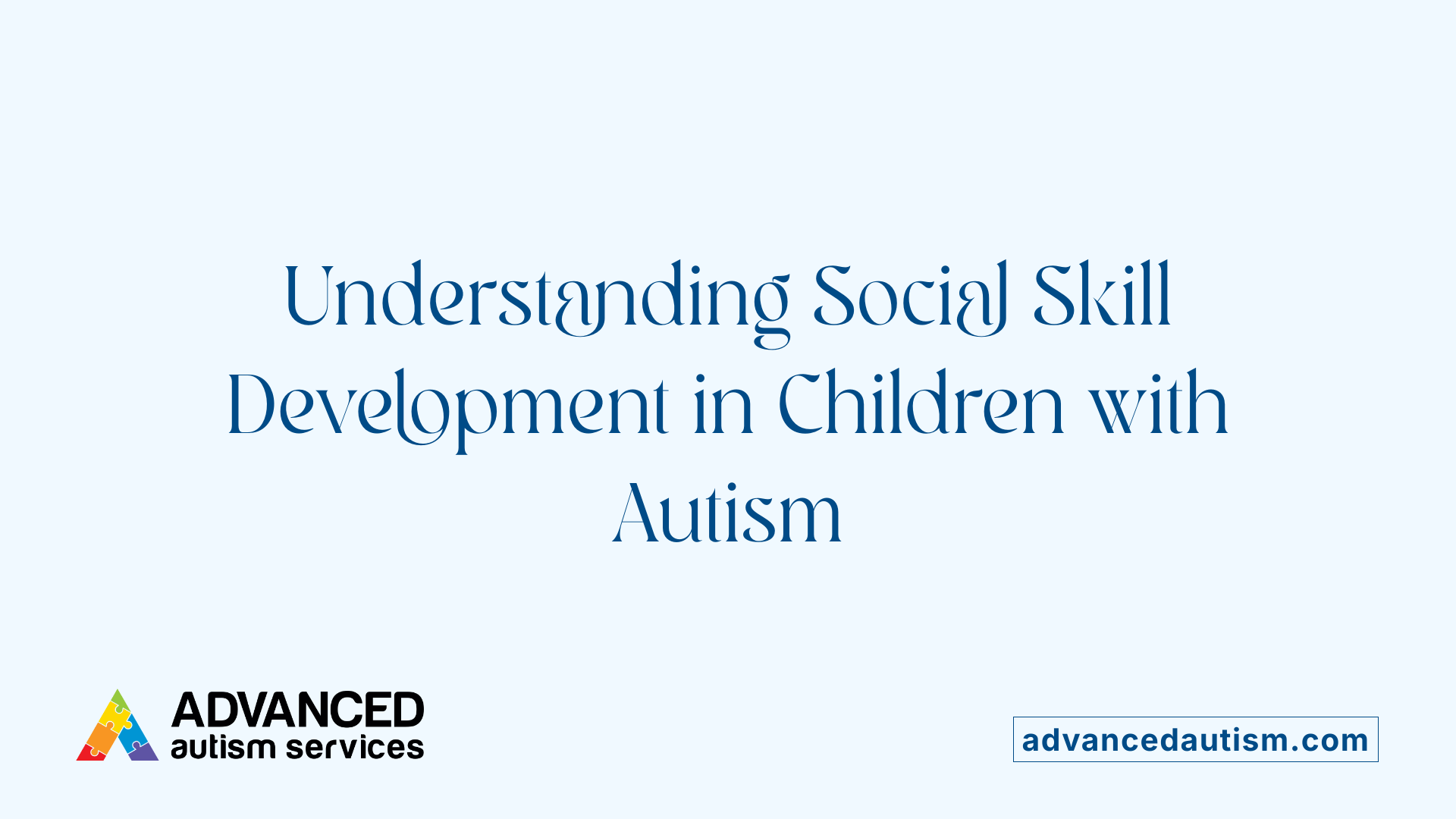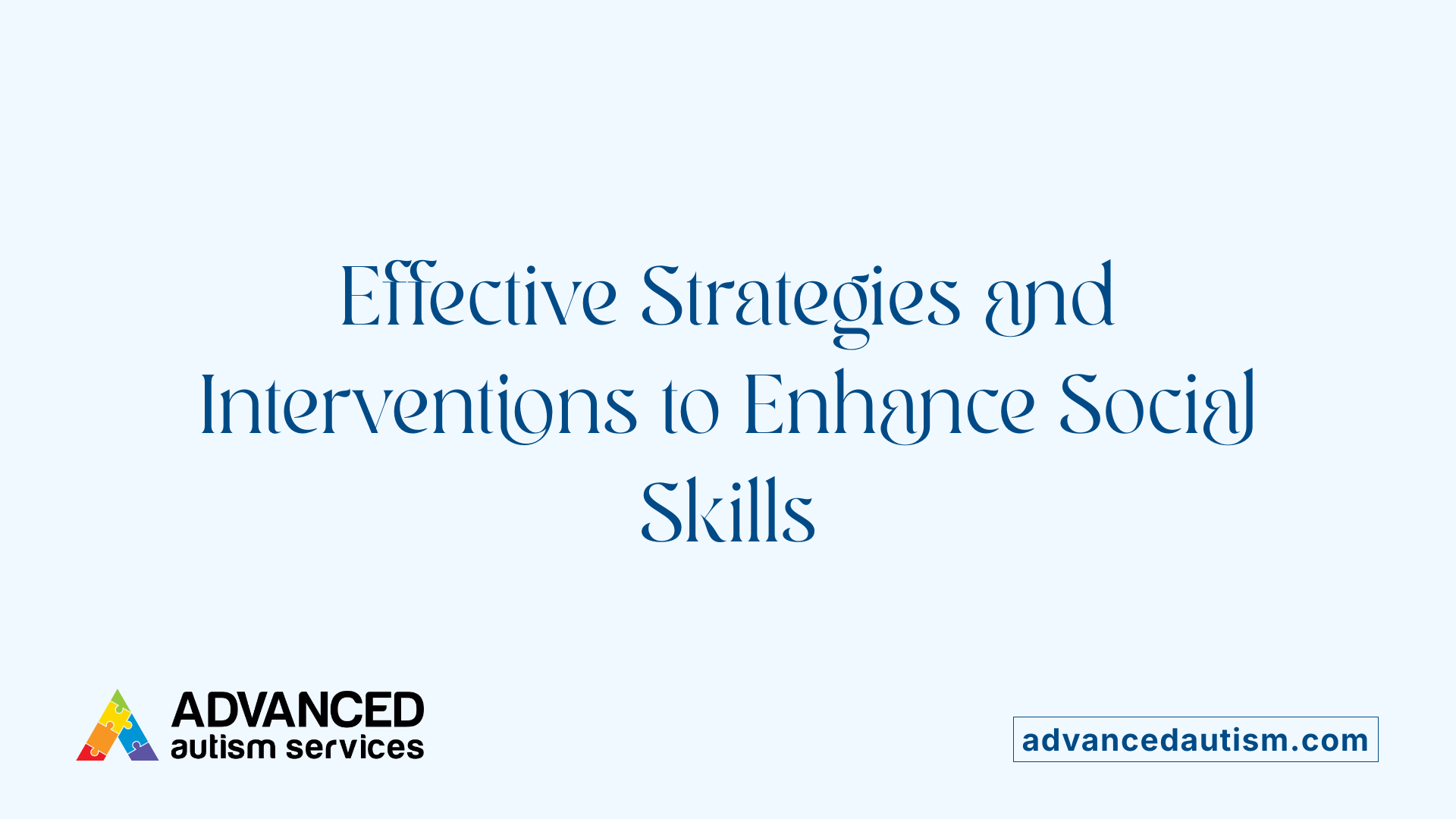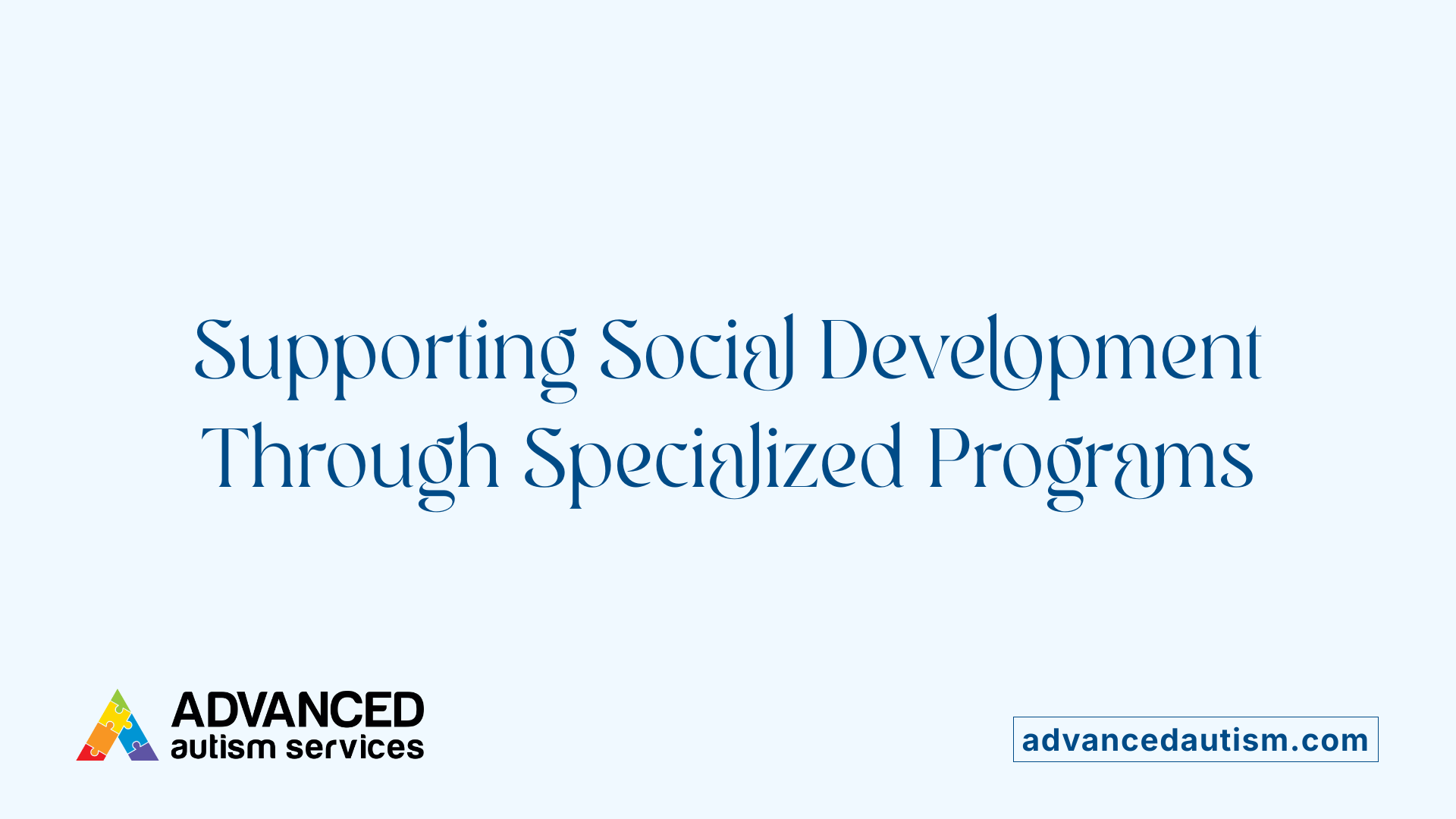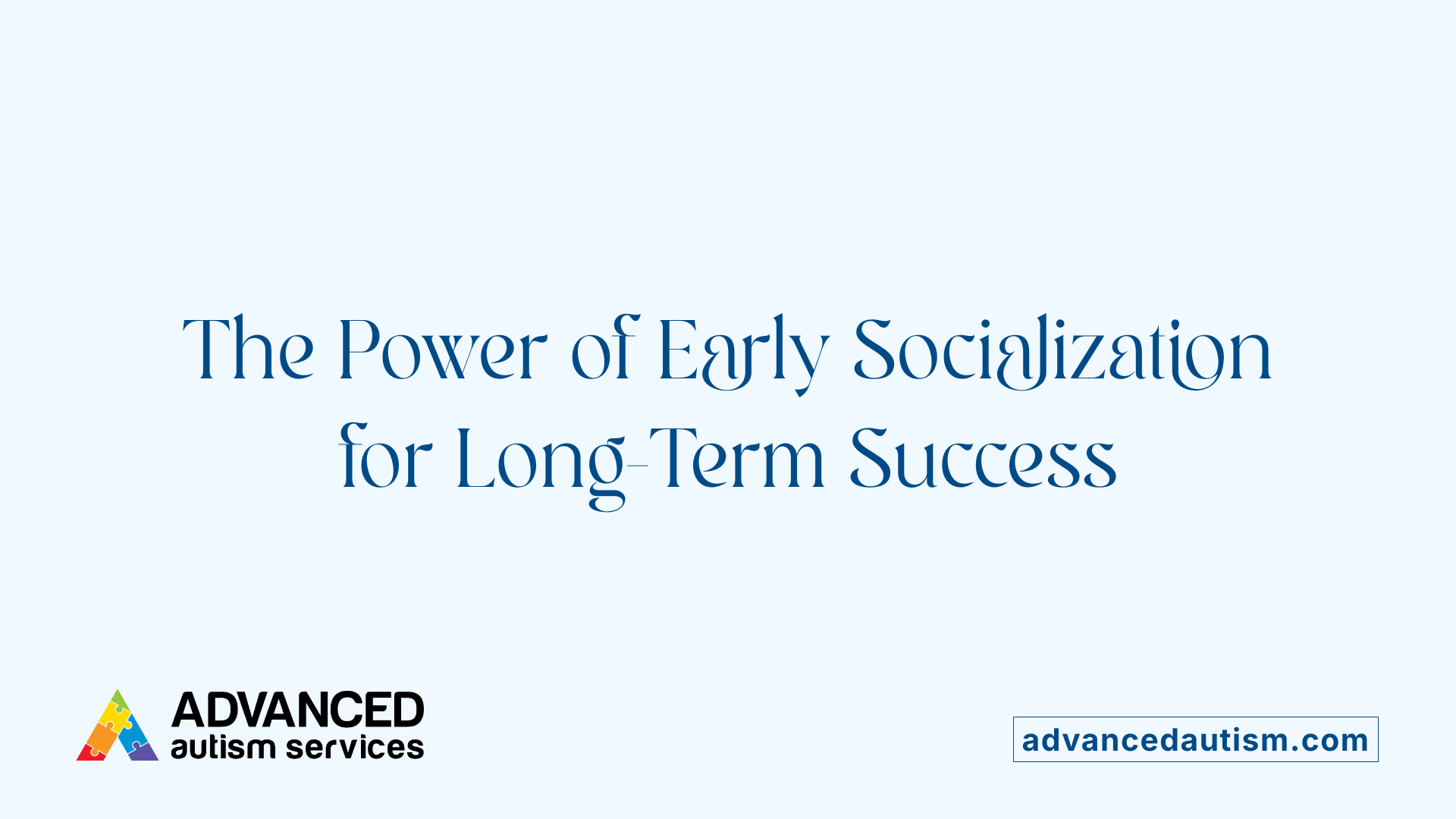Understanding the Importance of Early Socialization in Autism
Early socialization plays a crucial role in supporting children with autism spectrum disorder (ASD). It provides the foundation for developing communication, social interactions, and emotional understanding, which are essential for a child's successful integration into community and peer groups. This article explores the developmental aspects, effective strategies, assessment techniques, and available resources that foster social skills in children with autism, emphasizing the importance of early intervention.
Developmental Aspects of Social Skills in Children with Autism

What are the developmental aspects of social skills in children with autism?
Children with autism often experience delays or differences in several core social skills. Unlike typically developing children, who usually pick up social cues and behaviors naturally through exposure and interaction, children with autism may struggle with communication, recognizing emotional cues, and engaging in peer relationships.
The development of social skills in children with autism involves overcoming specific challenges. For instance, many children with autism find it difficult to initiate and sustain conversations, share enjoyment, or respond appropriately to social overtures. They may also have difficulty with turn-taking, eye contact, and joint attention, which are foundational skills for social interaction.
Early detection and intervention play pivotal roles in addressing these developmental hurdles. When interventions are introduced early, ideally before the age of three, they can positively influence how children develop social skills. Strategies such as explicit teaching of social rules, the use of visual supports like social stories, and role-playing activities help children understand and practice appropriate behaviors.
It's important to recognize that there is variability in how children with autism reach social milestones. Some children may develop certain skills up to 18-24 months, similar to their typically developing peers, while others may plateau or regress, emphasizing the need for individualized programs.
Teaching empathy and recognizing emotions are crucial components of social development. These skills involve understanding others' feelings, respecting social norms, and navigating complex social scenarios successfully. Tools like social narratives and video modeling can be effective in helping children grasp these concepts.
Overall, tailored early intervention programs that focus on incremental skill building can support children with autism in acquiring essential social abilities, enabling better peer interactions, emotional understanding, and long-term social success.
Strategies and Interventions for Promoting Social Skills

What are effective strategies and interventions for promoting social skills in children with autism?
Promoting social skills in children with autism involves a variety of targeted strategies and interventions. Tailored social skills training programs are designed to meet individual needs, often working in conjunction with peer-mediated interventions and play-based therapies.
Utilizing visual supports, social stories, and comic strip conversations helps explain social rules and cues in an understandable way. These tools foster comprehension and facilitate social learning. Modeling social behaviors through demonstrations, role-playing activities, and imitation exercises also prove effective for teaching specific skills such as turn-taking and sharing.
Incorporating children’s strengths—like humor, music, or visual perception—can boost motivation and engagement during therapy. Structured group activities like lunch gatherings, social clubs, and community outings provide real-world practice, encouraging children to generalize skills beyond the clinical setting.
Emerging technology, including computer-based programs and virtual reality environments, offers innovative ways to teach social skills in engaging, safe, and controlled contexts. Consistent reinforcement, patience, and creating an environment that supports generalization are essential for success.
| Strategy | Description | Additional Details |
|---|---|---|
| Social Skills Training | Personalized programs targeting specific social deficits | Customized to individual profiles |
| Peer-Mediated Interventions | Using peers as social models and practice partners | Facilitates natural social exchanges |
| Visual Supports & Stories | Using pictures, social stories, and comic strips to explain behaviors | Enhances understanding and recall |
| Role-Playing & Imitation | Practicing social scenarios through act-outs | Builds confidence and skill retention |
| Strength-Based Approaches | Leveraging humor, music, visual perception for motivation | Increases engagement and transfer of skills |
| Structured Community Activities | Group events and outings to practice skills in real environments | Encourages generalization and confidence |
| Technology Tools | Use of apps, computer programs, and virtual reality for skill teaching | Offers immersive and repetitive learning opportunities |
How can embedding social interactions into reinforcement procedures improve social skills?
Embedding social interactions into reinforcement programs has been shown to significantly enhance social skill development in children with autism. In practice, this approach involves integrating social behaviors—such as making eye contact, smiling, laughing, and orienting toward a communication partner—into preferred activities or tokens used as reinforcers.
For example, during a reinforcement session, a child may be encouraged to look at the adult, smile, or respond verbally as part of the activity. When these social behaviors are directly tied to reinforcement, children are more motivated to repeat and learn them.
Research highlights that when social interactions are embedded into reinforcers, children’s social engagement levels increase markedly. A study involving children aged 3 and above illustrated improvements in social behaviors including increased eye contact, verbal initiations, and positive affect, along with more frequent synchronous engagement.
Overall, this method leverages motivation by making social behaviors part of enjoyable, reinforcing experiences. It fosters rapid learning, supports generalization to natural settings, and enhances the overall mood and positive disposition of the child.
| Aspect | Effect | Example |
|---|---|---|
| Increased Engagement | Higher frequency of social responses | Smiling, laughing, orienting to adult |
| Improved Mood | More positive affect during sessions | Elevated enthusiasm and happiness during interactions |
| Enhanced Learning Outcome | Better retention and application of skills | Generalization to other settings and activities |
| Sustainment of Gains | Longer-term improvements with consistent intervention | Reinforcement embedded social skills contribute to lasting change |
In summary, embedding social interactions into reinforcement routines offers a powerful tool to boost social motivation and skill acquisition in children with autism. This approach not only encourages consistent practice but also makes social behaviors engaging and naturally rewarding, thereby supporting lasting social development.
The Role of Specialized Programs and Techniques

What resources and guidance are available for parents and professionals to support social development in children with autism?
Parents and professionals have access to a variety of resources to facilitate social skills development in children with autism. Educational programs such as ARIS (Autism Resource and Information Service) focus on socialization and group play, providing structured lessons that promote sharing, turn-taking, and joint attention.
Specialized training for caregivers and educators enhances their ability to teach and reinforce social behaviors effectively. Therapy services like social skills training, role-playing, emotional regulation activities, and peer-mediated interventions offer structured opportunities for children to practice social exchanges.
Visual supports are integral tools, including social stories that depict social situations, picture exchange systems, and visual schedules that help children understand social expectations.
Organizations such as the CDC also provide extensive materials, data, and strategies, advocating early diagnosis and intervention that encourage social engagement and inclusion.
Overall, these resources aim to equip both families and professionals with effective strategies to foster social connectedness.
What assessment techniques are used to evaluate social skills in children with autism?
Evaluating social skills involves multiple assessment approaches to capture a comprehensive understanding of a child's social functioning.
Standardized rating scales like the Autism Social Skills Profile (ASSP), Social Skills Improvement System (SSIS), and the PKBS-2 are widely used because of their reliability and validity in measuring social competencies.
Observational assessments are also vital, including naturalistic observation in everyday settings such as home, school, or community environments. These methods focus on real-time interactions, capturing spontaneous social behaviors.
Clinical tools, including the NEPSY-2 assessment and the Double Interview, help identify specific social strengths and difficulties.
Multi-informant questionnaires completed by caregivers and teachers offer valuable insights across different contexts, aiding in accurate diagnosis and intervention planning.
Together, these techniques guide tailored strategies to improve social interactions and support ongoing development.
Notable Programs and Techniques for Developing Social Skills
| Program/Tool | Description | Unique Features |
|---|---|---|
| PEERS Program at UCLA | A 16-week structured social skills training that includes tips on dating and peer relationships. | Long-lasting benefits shown in studies. Focuses on real-life social application. |
| Use of social stories, Video Self-Modeling (VSM), and Role-playing | Visual and experiential methods used to teach social norms and behaviors. | Enhance understanding and practice in controlled settings. |
| ARIS Curriculum | An early education program focusing on socialization and group play. | Embedded socialization strategies widely integrated into early learning. |
| Pivotal Response Treatment (PRT) | A behavioral intervention that emphasizes motivation and social engagement. | Parent-training component to embed strategies at home. |
| Assessment Models (ASSP and Observation) | Tools for evaluating social skills development. | Standardized and observational, providing comprehensive insights. |
How do these programs and tools support social skills development?
Programs like PEERS and ARIS deliver structured, evidence-based curricula that target core social behaviors such as sharing, turn-taking, and joint attention.
Visual and experiential methods like social stories, role-playing, and video modeling increase understanding, motivation, and practice of appropriate social interactions.
Assessment tools guide individualized planning, setting measurable goals to track progress and adjust strategies accordingly.
Combining these resources and techniques fosters a holistic approach to social skills development, essential for improving community participation, friendships, and overall well-being.
The Impact of Early Intervention and Socialization on Long-Term Outcomes

What evidence supports early socialization practices for children with autism?
Research has consistently shown that early socialization activities, combined with targeted interventions, can produce meaningful improvements in children with autism spectrum disorder (ASD). For instance, studies demonstrate that teaching parents to embed social engagement strategies into daily routines significantly boosts behaviors like eye contact, verbal initiations, and expressions of positive emotion. These improvements often extend beyond clinical settings, becoming evident in naturalistic environments such as home and community.
Early identification of social challenges—such as difficulty maintaining eye contact, initiating interactions, or understanding non-verbal cues—enables timely intervention. When therapy incorporates preferred interests and environmental modifications, children become more motivated and engaged, facilitating better social interactions with peers.
Programs like peer-mediated interventions, social stories, and role-playing are particularly effective at fostering foundational social skills. These strategies help children with ASD learn to share, take turns, and participate in group activities, which are essential for building friendships and integrating into their communities.
Overall, early socialization efforts are linked with improved social competence, reduced anxiety, and greater independence, illustrating their importance in shaping positive developmental trajectories.
Empowering Children with Autism Through Early Socialization
Early socialization for children with autism is vital in building the foundation for meaningful communication, peer relationships, and social independence. A combination of evidence-based practices, tailored interventions, and supportive resources can significantly improve social functioning and overall quality of life. Ongoing research and innovative tools continue to enhance our understanding of effective strategies, emphasizing that early, proactive efforts can make a lasting difference. Supporting children with autism to participate fully in social environments not only benefits their personal development but also fosters greater inclusion and understanding within communities.
References
- Social skills and autism
- Improving Social Initiations in Young Children with Autism ...
- Making (and Keeping) Friends: A Model for Social Skills ...
- Intentional Socialization For Children Affected By Autism
- 8 Ways to Promote Socialization Skills in Students with ...
- An Early Social Engagement Intervention for Young ...
- The Importance of Socialization for Individuals with Autism ...



